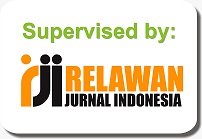The Effect of Academic Self-Efficacy on Students’ Thesis Writing Resilience
DOI:
https://doi.org/10.32939/tarbawi.v18i1.1689Keywords:
Self-Efficacy, Students’ Thesis, Writing ResilienceAbstract
The most crucial inventory of literacy skills for students is completing a final project in the form of a thesis. However, many students experience high levels of anxiety during the guidance process, due to worries about conducting difficult research and demands from parents, as well as finding problems that can be used as titles, understanding how to write scientific papers, finding references, and meeting supervisors. This leads to stress among students, who feel pressured and lack confidence in their abilities, which is an important phenomenon studied here. Therefore, this study aims to determine the influence of student self-efficacy factors on their ability to complete their thesis. This research is a form of correlation between student self-efficacy and the ability to write a thesis, and it involved 117 seventh-semester students of the Islamic Religious Education study program at one of the Islamic universities in Jambi, Indonesia. The study used a Thesis Writing Resilience questionnaire consisting of 43 items and an Academic Self-Efficacy questionnaire consisting of 35 items. The study found a strong correlation between self-efficacy and the ability to complete a thesis with a correlation coefficient of -0.8. Therefore, there is a strong influence of student self-efficacy on their ability to write a thesis. Self-efficacy can reduce or decrease student anxiety in preparing a thesis. This level of academic self-efficacy is more influenced by the level of individual resilience to their beliefs and individual ability to master a task. By improving student self-efficacy, students can feel more confident and less anxious in the thesis writing process. Therefore, universities and educators should develop interventions to improve student self-efficacy, such as providing guidance and support to help students develop the necessary skills to complete their thesis successfully. Additionally, future research should explore other factors that may influence student self-efficacy, such as family support, cultural backgrounds, and personal motivation, to gain a more comprehensive understanding of the topic.
Downloads
References
Alfaiz, A., Zulfikar, Z., & Yulia, D. (2017). Efikasi diri sebagai faktor prediksi kesiapan mahasiswa dalam mengerjakan tugas kuliah. Ilmu Pendidikan: Jurnal Kajian Teori dan Praktik Kependidikan, 2(2), 119-124. https://doi.org/10.17977/um027v2i22017p119
Alwisol. (2010). Psikologi Kepribadian. UMM Press.
Bart, S. (1994). Psikologi Kesehatan. PT. Gramedia Widiasarna Indonesia.
Farr, R. (1984). Reading Comprehension?. Learning to Read in American Schools: Basal Readers and Content Texts, 39.
Ghaleb, A. B., Ghaith, S., & Akour, M. (2015). Self-efficacy, achievement goals, and metacognition as predicators of academic motivation. Procedia-Social and Behavioral Sciences, 191, 2068-2073. https://doi.org/10.1016/j.sbspro.2015.04.345
Husni, T. (2022). Implementasi Budaya Literasi Baca Tulis Melalui Membaca Pemahaman. 2 June 2022. http://lpmpaceh.kemdikbud.go.id/?p=4153
Januarti, R. (2009). Hubungan antara Persepsi terhadap Dosen Pembimbing dengan Tingkat Stress dalam Menulis Skripsi. Univerversitas Muhammadiyah Surakarta. http://eprints.ums.ac.id/ 4890/1/F100050098.pdf
Jeniu, E., Widodo, D., & Widiani, E. (2017). Hubungan pengetahuan tentang autisme dengan tingkat kecemasan orangtua yang memiliki anak autisme di Sekolah Luar Biasa Bhakti Luhur Malang. Nursing News: Jurnal Ilmiah Keperawatan, 2(2). https://doi.org/10.33366/nn.v2i2.445
Jones, R. N. (2011). Teori dan Praktik Konseling dan Terapi (4 ed.). Pustaka Pelajar.
Kristanto, P. H., Pm, S., & Setyorini, S. (2014). Hubungan Antara Kepercayaan Diri Dengan Kecemasan Dalam Menyusun Proposal Skrips. Satya Widya. https://doi.org/10.24246/ j.sw.2014.v30.i1.p43-48
Kusuma, D., Triatna, C., & Permana, J. (2012). Pendidikan Karakter: Kajian Teori dan Praktik di Sekolah. PT. Rosdakarya.
Lightsey, R. (1999). Albert Bandura and the exercise of self-efficacy. Journal of Cognitive Psychotherapy, 13(2), 158. https://doi.org/0.1891/0889-8391.13.2.158
Listanto, V., & Demak, I. P. K. (2015). Kecemasan pada mahasiswa angkatan 2010 yang mengerjakan tugas akhir program studi pendidikan dokter FKIK UNTAD tahun 2010. Medika Tadulako: Jurnal Ilmiah Kedokteran Fakultas Kedokteran dan Ilmu Kesehatan, 2(1), 40-49.
Ormrod, J. E. (2008). Educational Psychology: Membantu Siswa Tumbuh dan Berkembang (2 ed.). Erlangga.
Putra, A., & Roza, M. (2020). Systematic Literatur Review: Adversity Quotient dan Self Efficacy dalam Pembelajaran Matematika. At-Tarbawi: Jurnal Pendidikan, Sosial dan Kebudayaan, 7(2), 184-201.
Rau, M. J., Rahman, A., & Randalembah, G. R. (2017). Faktor Risiko Kejadian Gangguan Anxietas Di Rumah Sakit Umum Daerah Ampana Kota Kabupaten Tojo Una-una Tahun 2016. Preventif: Jurnal Kesehatan Masyarakat, 8(1). https://doi.org/10.53089/medula.v12i1.400
Raudatussalamah, V. S. (2014). Self-Efficacy dan Self-Regulation sebagai unsur penting dalam pendidikan karakter (Aplikasi pembelajaran mata kuliah akhlak tasawuf). Kutubkhanah, 17(2), 214-229. https://doi.org/10.24014/kutubkhanah.v17i2.818
Rustika, I. M. (2012). Efikasi diri: tinjauan teori Albert Bandura. Buletin psikologi, 20(1-2), 18-25. https://doi.org/10.22146/bpsi.11945
Safitri, D. P., & Masykur, A. M. (2017). Hubungan Efikasi Diri dengan Kecemasan Menghadapi Kejuaraan Nasionalpada Atlet Tenis Lapangan Pelti Semarang. Jurnal Empati, 6(2), 98-105.
Saraswati, N., Dwidiyanti, M., Santoso, A., & Wijayanti, D. Y. (2021). Hubungan efikasi diri dengan kecemasan menyusun skripsi pada mahasiswa keperawatan. Holistic Nursing and Health Science, 4(1), 1-7. https://doi.org/10.14710/hnhs.4.1.2021.1-7
Sari, A. R., & Satwika, Y. W. (2022). Hubungan Regulasi Diri Dengan Prokrastinasi Siswa Di Masa Pandemi Covid-19. Jurnal Penelitian Psikologi, 9(1), 136-145.
Sari, E. S., & Pujiono, S. (2017). Budaya Literasi di Kalangan Mahasiswa FBS UNY. Litera, 16(1). https://doi.org/10.21831/ltr.v16i1.14254
Schunk, D. H. (2012). Learning Theories: An Educational Perspectives (6th ed.). Pearson Education Inc.
Sugiyono. (2013). Metode Penelitian Kuantitatif, Kualitatif, dan Kombinasi Mixed Method. Alfabeta.
Suseno, M. N. (2012). Pengaruh Pelatihan Komunikasi Interpersonal Terhadap Efikasi Diri Sebagai Pelatih Pada Mahasiswa. Kementerian Agama Republik Indonesia.
Tilson, G. P., & Hathaway, S. (2010). Learning to Achieve; A Review of the Research Literature on Employment Experiences and Outcomes for Youth and Adults With Learning Disabilities (J. M. Taymans (ed.)). National Institute for Literacy.
Unsada, S. (2021). Mahasiswa dan Literasi. 24 January 2021. https://kumparan.com/swara-unsada/mahasiswa-dan-literasi-1v2XkjIlZgZ/full
Wulandari, R. P. (2012). Hubungan Tingkat Stres Dengan Gangguan Tidur Pada Mahasiswa Skripsi Di Salah Satu Fakultas Rumpun Science-Technology. Universitas Indonesia. https://lib.ui.ac.id/ file?file=digital/20313206-S43681-Hubungan tingkat.pdf
Zhai, Y., & Du, X. (2020). Addressing collegiate mental health amid COVID-19 pandemic. Psychiatry research, 288, 113003. https://doi.org/10.1016/j.psychres.2020.113003
Downloads
Published
Issue
Section
License
Copyright (c) 2022 Nuzmi Sasferi

This work is licensed under a Creative Commons Attribution-ShareAlike 4.0 International License.









